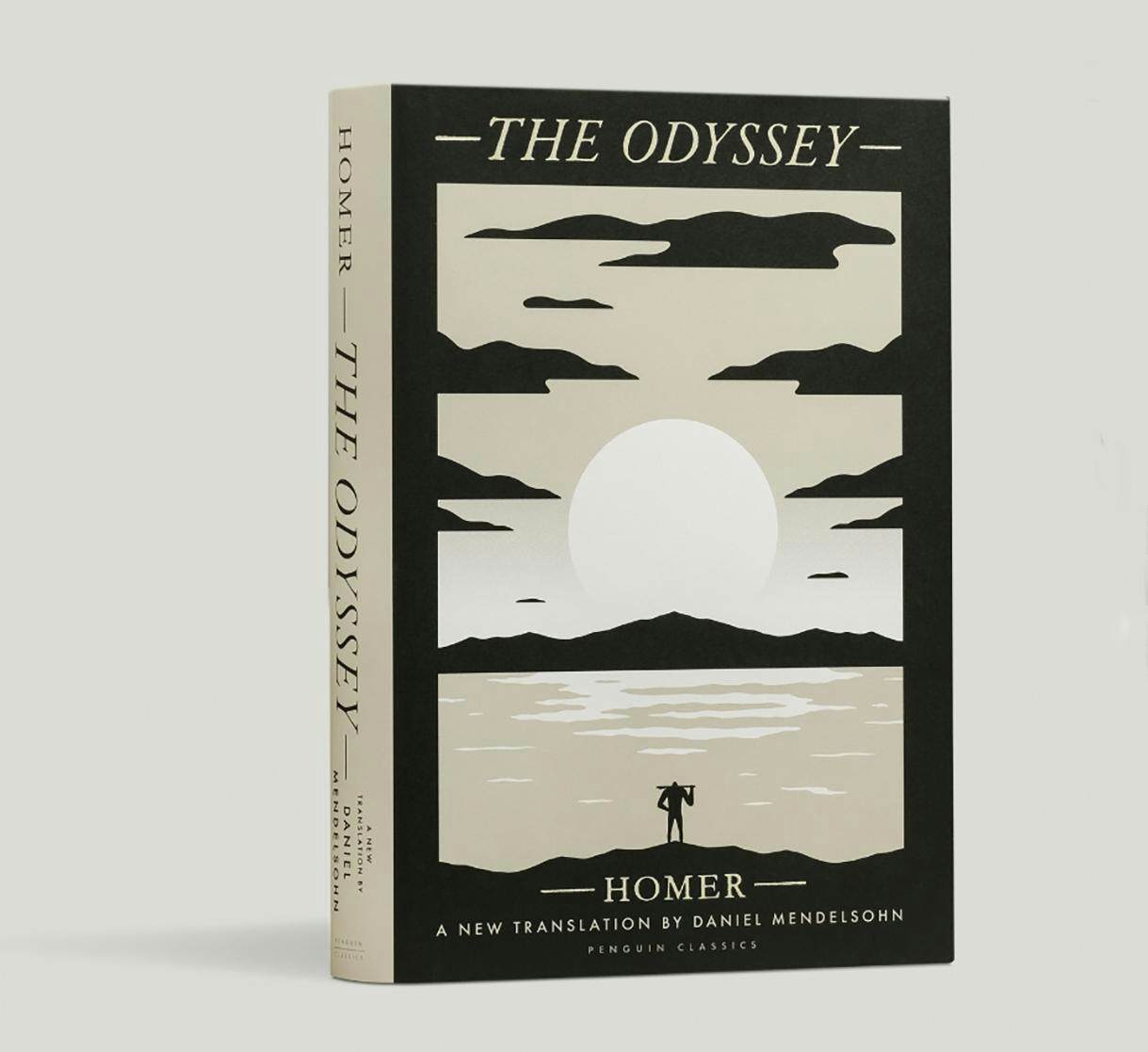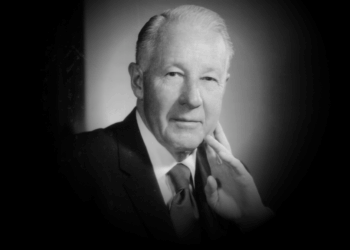This article is taken from the October 2025 issue of The Critic. To get the full magazine why not subscribe? Get five issues for just £25.
The world of literary translation is in flux. On the one hand, translated fiction is getting more attention than ever on bookshop shelves and in prize coverage, helped by the reliable cool of publisher Fitzcarraldo Editions and its signature International Klein Blue covers. On the other hand, much of the translated fiction that sells big and spreads by word of mouth is identikit pap that “perms” any three from the following: Japan, cats, coffee shops, locked rooms, bookstores and detectives.
The position of literary translators is similarly double-edged. They still struggle to be named on the cover of a book they have translated and are typically paid a flat fee rather than the share of royalties the author enjoys. But the translator of a new work of fiction does have one unique advantage: they are the sole custodian of that book in the translated language. Their words are gospel. Now that’s power.
So spare a thought for the translator of a literary classic. They approach their task already hampered by the shadow of a long line of earlier translators, by the need to redo something that has been done many times before.
The question they are faced with is: do we even need another translation of, say, The Iliad? Hasn’t the Anglophone world been pretty well supplied with renditions of Homer’s account of the Trojan war? Is it in fact — the translator might whisper to themselves in bed at night — an act of pure arrogance to believe I can bring anything new to this?

The latest example comes in — yes, really — another new translation of Homer’s The Odyssey. With the Penguin Classics imprimatur, this is clearly a major release. Yet, aren’t there already two close-to-canonical Odysseys in print with Penguin, translated by E.V. Rieu (founder of Penguin Classics) and Robert Fagles? Not to mention Emily Wilson’s much-praised translation, which came out less than ten years ago?
This one is translated by professor, author and editor Daniel Mendelsohn, who provides the essential component in any new classics translation: a 20-page essay explaining — parry, jab — why his version is the best. In essence it comes down to providing not just “the ‘what’ of the text … but [also] the ‘how’”. That is, for the technically-minded, Mendelsohn’s translation is the first to mirror Homer’s six-beat lines, which are more often in English verse translations cut to five beats.
Mendelsohn’s introduction offers gentle commentary on Fagles’s translation, as well as those by Robert Fitzgerald and Stanley Lombardo, but he reserves his real wrath for Emily Wilson’s much-acclaimed Odyssey. Her “commitment to a terse line” means she “does not begin to convey the various facets” of Homer’s lines. She “strips away many of the subtleties of the original” and “admirable as its many other qualities are” — nice of him to concede the point — “the poem as a whole loses much of its subtlety and texture”.
In truth, Mendelsohn simply offers a rendition that is not better, just different. His lines are so long and the syllabic weighting so convoluted that on the page, and to the ear, it reads more as prose than poetry. Where Wilson’s opening has force and rhythm — “Tell me about a complicated man, / Muse, tell me how he wandered and was lost / when he had wrecked the holy town of Troy” — Mendelsohn’s seems languorous in comparison: “Tell me the tale of a man, Muse, who had so many roundabout ways / To wander, driven off course, after sacking Troy’s hallowed keep”.
This sort of introduction, blending defence with attack on one’s predecessors, is de rigueur — for how else can the translator justify their work? In his excellent 2017 translation of Pushkin’s Eugene Onegin, Anthony Briggs was so intent on making it his own that he even changed the traditional English title.
It became Yevgeny Onegin, which works first because it removes the suggestion that a dandy from early 19th century St Petersburg has the English name “Eugene”, and second because it restores the matching rhythm of the forename and surname. (Lydia Davis had less success when she attempted to retitle the first volume of Proust’s À la recherche du temps perdu from Swann’s Way to The Way by Swann’s, seeking to retain what she called the “rocking or walking motion” of Proust’s Du côté du chez Swann. The UK publisher allowed her change; the US didn’t. This is the trouble when a translated phrase becomes part of the language itself.)
Yet Briggs’s introduction is otherwise a model of the translator’s prefatory art. He explains his rationale and mentions other translations, but makes few direct criticisms: after all, a translation of a verse novel — contorted form! — is more than most a version which takes on a life independent of the original.
He does remind us, though, of the risks of the unimaginative translator: Vladimir Nabokov, who always thought he knew best, created an Onegin which transliterated the Russian word for word, producing an outcome that Edmund Wilson called “bald”, “awkward” and “banal”.
Accusations against one’s translation predecessors don’t come stronger than David Luke’s, whose 1988 translation of Thomas Mann’s Death in Venice was the first in English since Helen Lowe-Porter’s, 60 years earlier. As he points out in his introduction, “it is now increasingly recognised that Mrs Lowe-Porter’s grasp of German was rather less than adequate”.
Luke then provides a damning four-page list of Lowe-Porter’s errors in basic understanding of German words, and adds the charge — zing! — that, in addition, she “was in the habit of unnecessarily and often damagingly excising words, phrases, even whole sentences”.
There can never be a definitive version in translation because the definitive is the original
This is, of course, a rare case. Most contrasting translations are the result of preferred weights and measures, rather than outright blunders. The bottom line is that different translations offer different things. There can never be a definitive version in translation because the definitive version is the original. As Wilson puts it: “My translation is, like all translations, an entirely different text from the original poem.” Or as Briggs added in his Onegin introduction: “We can only hope that the original doesn’t seem too unfaithful to its latest translation.”
That is not to say that attempts at fidelity are futile, but there is a clear danger of getting too bogged down in the language-specific qualities of the original at the expense of the readability of the translated text.
When esteemed translator Robert Chandler in 2010 refreshed his 1996 translation of Russian dissident writer Andrey Platonov’s The Foundation Pit, he made numerous stylistic changes. What was clear in the original now became hard to parse. Examples include “down cast eyes” (1996) becoming “down bent” (2010), “our sense of conviction” becoming “our convinced feeling”, and oddest of all, “an automobile that had been driven across open countryside after being repaired” became, in the new translation, “an automobile was being repaired there from going without roads” [sic].
Platonov deliberately deformed language, as Chandler points out in his introduction, yet this surely cannot be at the expense of comprehensibility. But perhaps the masters at this game are the current Russian-to-English translators of fashion, husband-and-wife team Richard Pevear and Larissa Volokhonsky.
Over the last three decades, Pevear and Volokhonsky (P&V) have translated all the major old Russian boys. The sense is that they must have some kompromat on commissioning editors to keep getting hired, given how awkward is the English in the translations they produce.
Their translations are egregious (which, as Bernard Woolley advised Jim Hacker, means “outstanding … in one way or another”). P&V resist the “smooth” or idiomatic, and Pevear was critical of Briggs’s translation of War and Peace for Briggs’s reasonable intent to produce an English version that “imagine[s] how the average Russian reads War and Peace and … try to recapture something similar in the translated text”. P&V’s non-idiomatic approach has one male character greeting another as “my gentle”, and rejects Briggs’s “what was left of the prince” in favour of “what had been he”.
The problem is what Anna Pasternak Slater, in a scathing review of P&V’s translation of her uncle Boris’s Dr Zhivago, calls the “pitfall [of falling] unconsciously into the linguistic aura of the original”, and producing “a kind of Russified English”. This gives, in P&V’s Zhivago, “the spouses went rolling off” instead of the original English translation’s “the couple drove off”. Janet Malcolm felt that P&V’s work was worthless to a reader “who asks only of a translation that it advance rather than impede their pleasure and understanding”. Critic Gary Saul Morson goes further: “Readers should never choose a translation by P&V if another exists.”
Both Malcolm and Morson prefer the classic translations by Constance Garnett. Garnett, who met Tolstoy in person, is routinely criticised for smoothing her translations too much, though the results are undoubtedly more fluid and fluent than P&V’s. After all, it hardly seems unreasonable for a reader of a 19th century novel to expect it to be rendered in late-19th century or early 20th century prose.
It is possible to have translations that are more up-to-date than Garnett’s without discarding comprehensibility as P&V do. The problem is that too many re-translations fulfil the false syllogism rule: “Something must be done; this is something; therefore we must do this.”
In the end, there’s only one thing for it: resist the lure of the new rendering, especially if you already have another version. To adapt the saying about the man with two watches: a reader with one translation always knows what the book says. The reader with two translations never does.












